Can Dogs Eat Fish?
You know, us fur-buddy parents can sometimes be caught off-guard, scratching our heads and thinking, “hey, my pooch likes sniffing and chasing fish in the pond, but can he munch on one?” ???? Just like us humans, our pooches can bask in a sea of nutritional goodies fish offer, given (and this is a big GIVEN), we serve it right and maintain a balance. The sea-life protein supplier is packed with top-notch nutrients, making it a catch for your fur friend’s overall health.

Potentially, picking fresh fish from the market instead of canned ones could be the starting point towards a happy fish tale. ???? But, it isn’t all about just getting a salmon and serving it to your fur buddy right up.

You gotta consider factors such as cooking methods (no, raw won’t work here; your little munchkin’s tummy isn’t a sushi bar) ????. Carefully removing all bones (those tiny ones can be nasty) and ensuring the fish is parasite-free is crucial. Take note, not all fish are created equal – some might do more good than others. But hey, let’s say yes to fishy treats and wave a cheery bye to seafood confusion!
Types of Fish Dogs Can Eat

Our fur buddies can definitely dip their paws into the fish bowl (we don’t mean that literally), provided we’re not just hooking any fish out of the water and tossing it their way. Let’s dive deeper into what fish your canine companion can safely enjoy, and how those choices can make their tails wag even more!
Salmon

First off, let’s reel in the big one – Salmon. This superstar fish is loaded with omega-3 fatty acids that’ll leave your fluffy buddy’s coat looking like a shampoo commercial! Just remember, it’s got to be cooked; serving sushi-style salmon is a big no-no, those pesky parasites can cause some real trouble.
Tuna
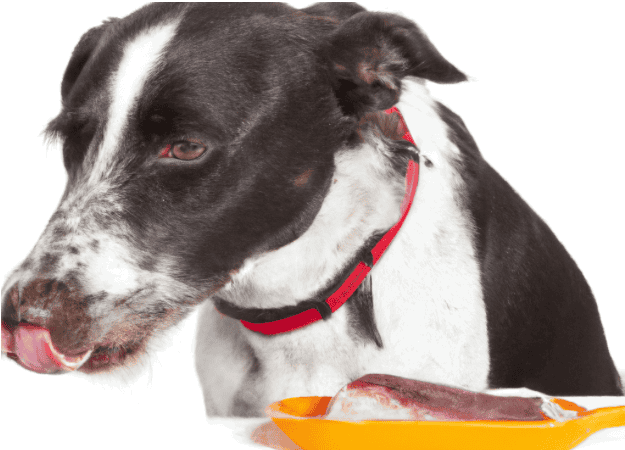
Tuna’s up next and while they look pretty ferocious in nature, the canned version is a perfectly harmless and good option for your dog. Specifically, light canned tuna has lower mercury levels. However, be mindful not to overdo the tuna treats, we wouldn’t want any heavy metal overload.
Whitefish
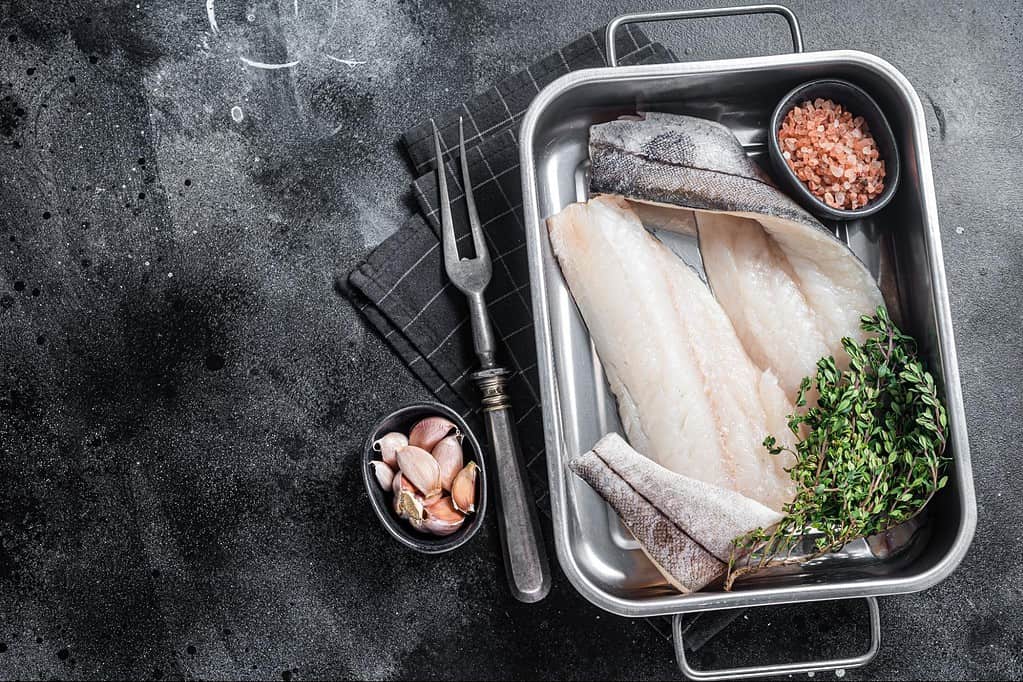
You’ll find ’em in most commercial dog foods. Ocean and lake whitefish are almost like the young rebels of the sea, with short lives that leave no room for heavy metal accumulation. Result? A safe choice for your pooch.
Sardines
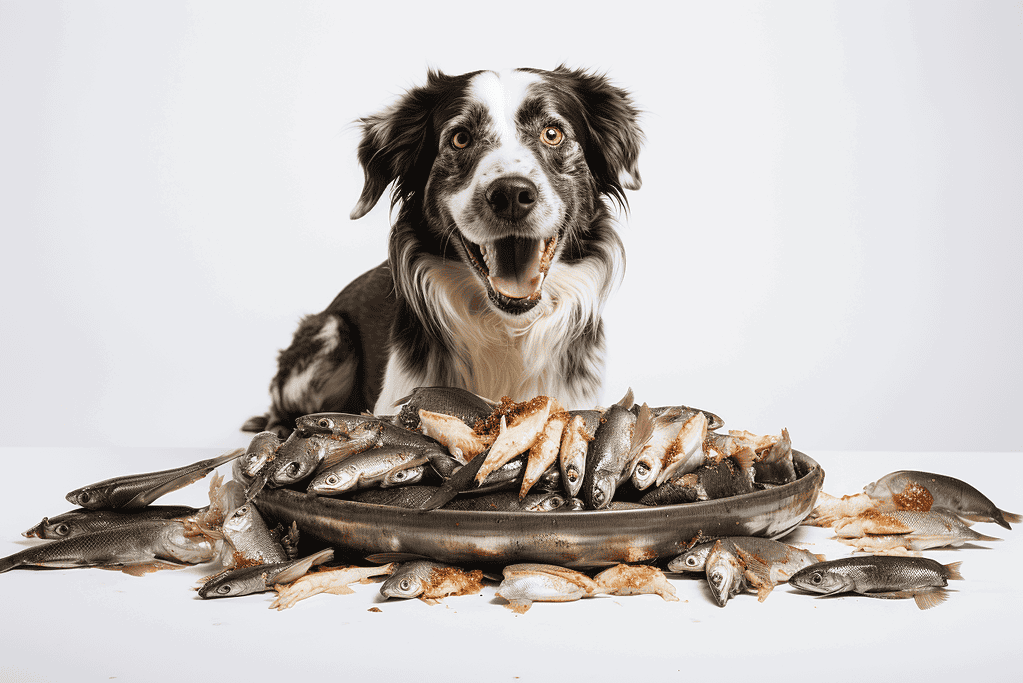
And how ’bout the small but mighty Sardines? These tiny champs are safe due to their size and low risk of mercury or parasites. Even their skin and bones are a-okay for a good munch.
Wild-caught
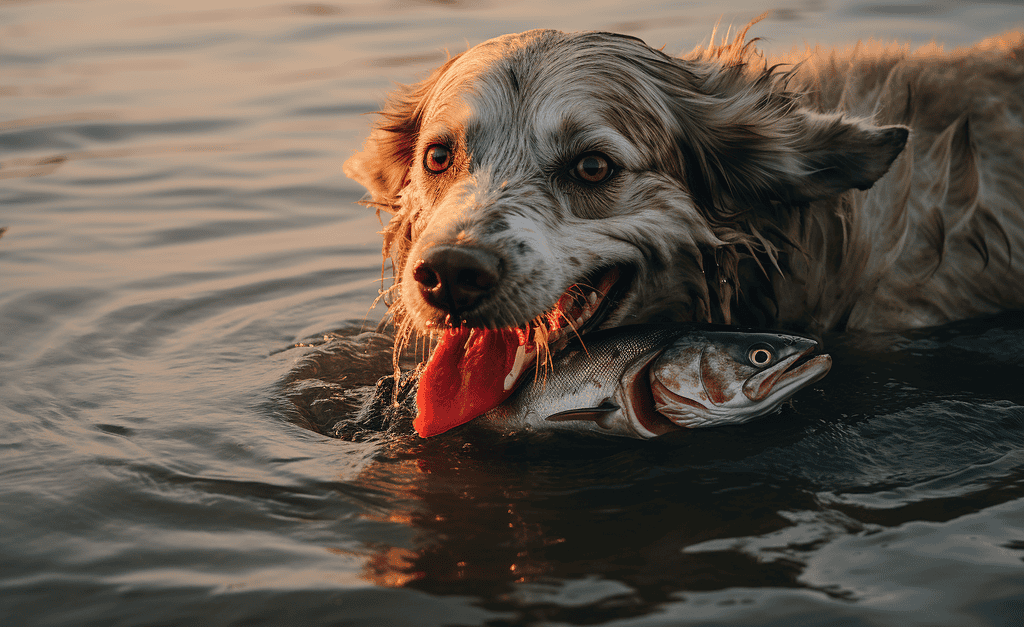
Remember, when you’re on a fishing expedition for your pooch, the wilder the better! Mainly because wild-caught fish have fewer pollutants and lots more healthy stuff.
But hey, not all sea dwellers are good news. Some to steer clear from are:
- King mackerel – mercury levels are way too high for your fur pal.
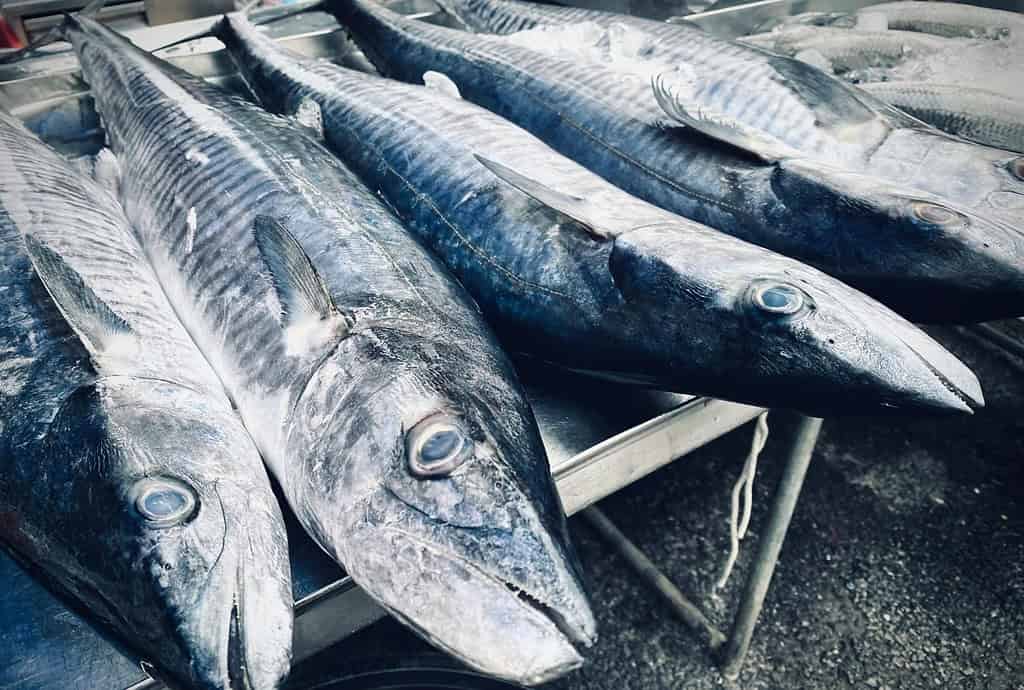
- Shark – it might sound cool, but unfortunately, they too pack a hefty mercury punch.

- Tilefish – another mercury-filled sea creature we’d rather watch than feed our pooches.
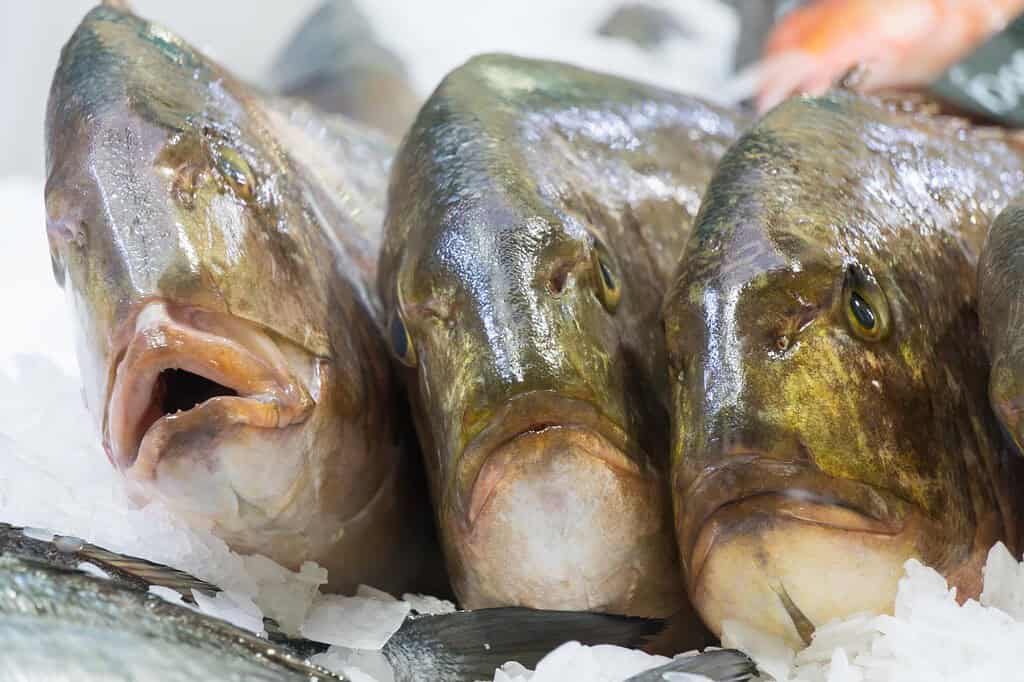
On safer shores, fish like flounder, cod, arctic char, and catfish can occasionally make it to your fur buddy’s dinner bowl, if cooked well and all bones removed.
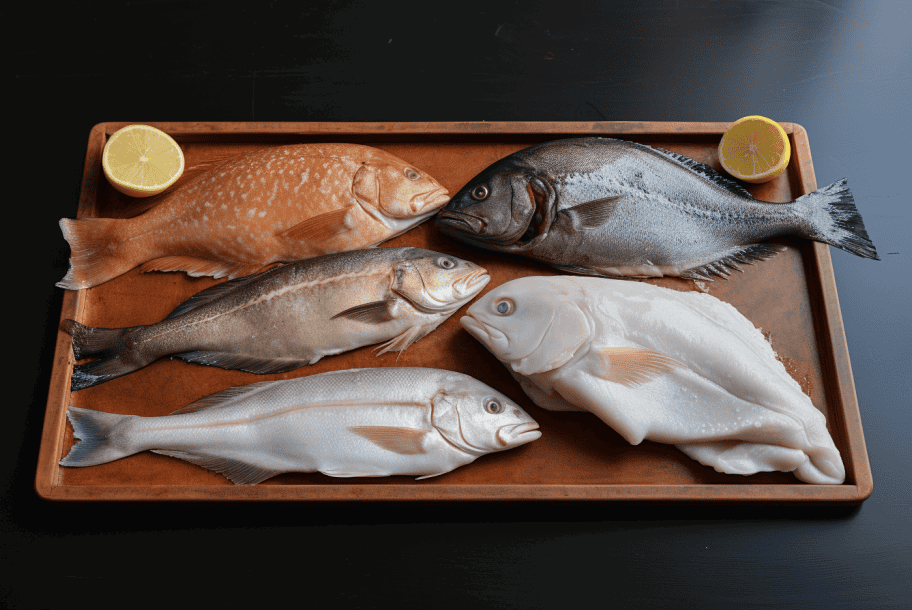
So, there you have it! Make sure to keep things balanced and informed while expanding your dog’s seafood horizon, and you’ll have a happy, healthy pup. In the end, it’s all about taking the right catch, cooked the right way, in the right amount!
Health Benefits of Dogs Eating Fish
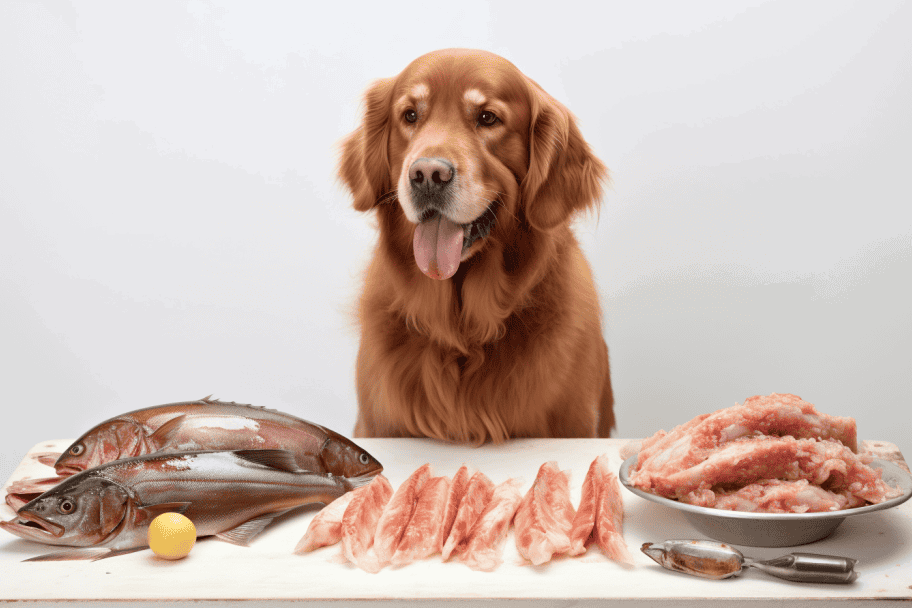
So, we’ve established that dogs can enjoy fish, but what does that mean for their health? Is feeding your fur buddy fish akin to hitting a health jackpot, or are we swimming in dangerous waters here? Let’s clear the murkiness surrounding the benefits and risks.
Fatty Acids
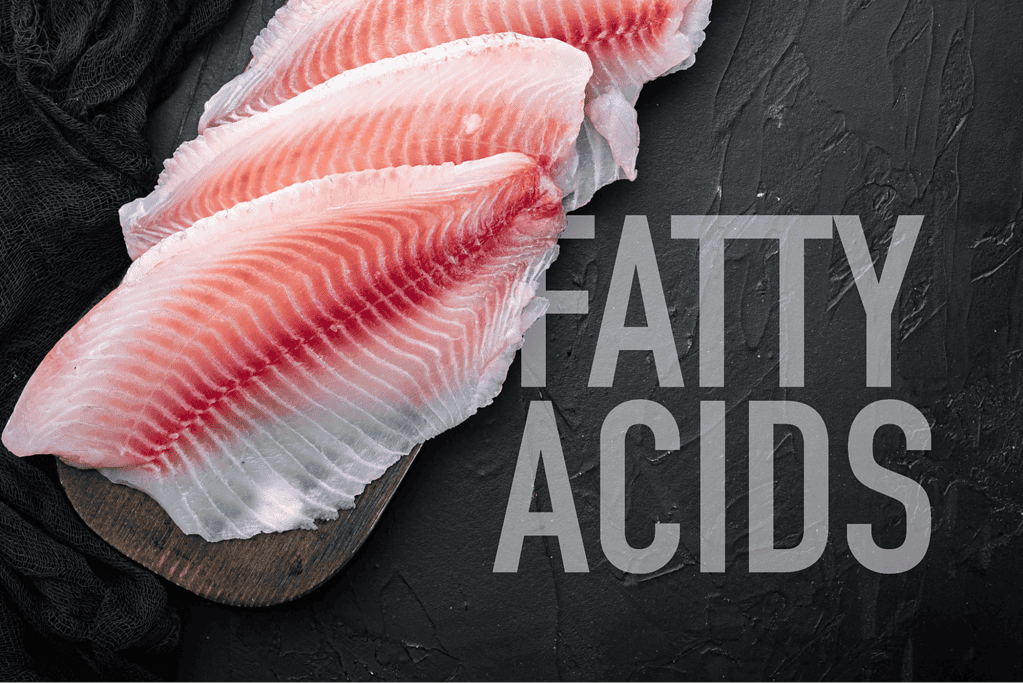
Alright, hear this – fish is like Popeye’s spinach, but for dogs! It’s rich in omega-3 fatty acids, making it great for overall health. Think less inflammation and easing ailments like arthritis and inflammatory bowel disease – now, that’s what we call “fishy-fabulous”!
Proteins
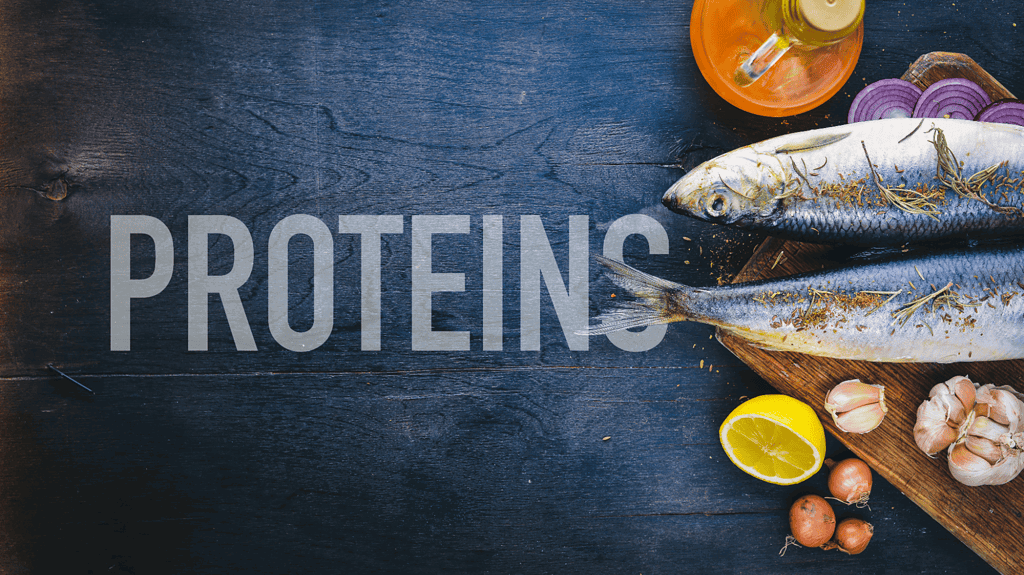
Besides throwing an omega-3 party, fish is also a huge protein patron. For doggies allergic to traditional proteins like beef, pork, or poultry, fish arrives like a knight in shining armor. They say good things come in small packages, and the fish skin agrees, serving up a healthy dose of collagen, which is fantastic for our aging furry pals’ bones and skin.
Enjoying this read?
We publish this content for free to generate interest in our Premium members' area. By subscribing, you can ask the writer any questions related to pet care and this article, get access to 100+ Premium Pet Care Guides and go Ad-Free with DogFix Premium for $2.99.
Potential Risks
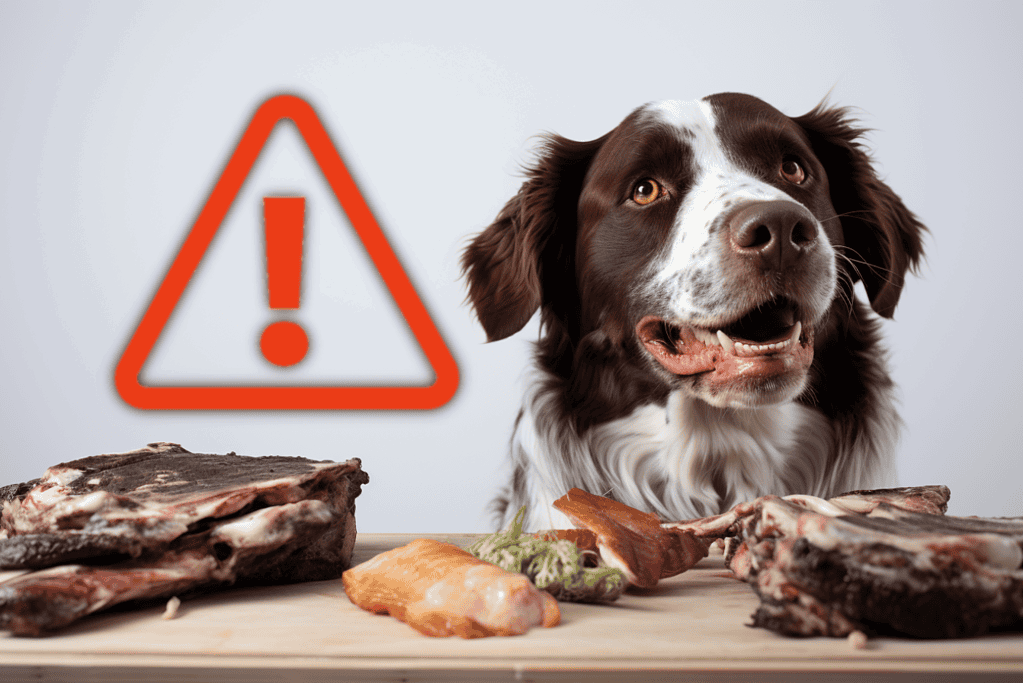
While the benefits of fish might make your fur pal fantastic, don’t throw caution to the waves just yet. Some fish, like swordfish and certain tunas, pack unhealthy amounts of mercury, and the FDA gives a big thumbs down to feeding dogs these types.
Mercury Poisoning

Mercury poisoning in our fur pal can get serious quickly. They’re likely dealing with upset tummy episodes – think vomiting, diarrhea, even neurological troubles, and trust me, you don’t want that!
Tummy Troubles

Rarely, but sometimes, a doggo’s tummy and fish don’t really hit it off, leading to adverse reactions like more vomiting or diarrhea. Always ensure that fishy feeds are properly prepared – cooked, deboned, and parasite-free.
Weight Gain

Avoid an overload, and go easy on the ocean treats. A couple of times per week should be safe as excess fat from fish could push your fur buddy’s scales… I mean weight, to the wrong side.

So, that’s our fishing expedition! Fish can swim their way into fur friends’ diets and bring some exciting health benefits, but it’s important always to navigate these waters carefully. Consult with your vet before making big diet changes and ensure the fish is properly prepared to avoid any potential risks.
Safety Factors When Dogs Eat Fish
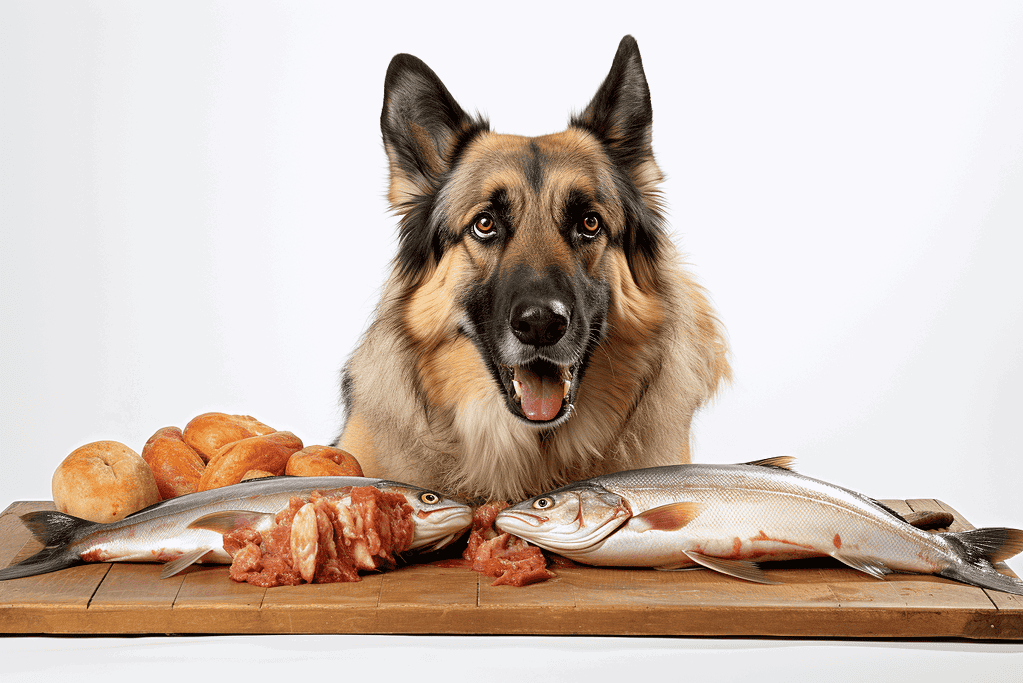
Yep, dogs can pig out on fish, but don’t let your pooch leap into this seafood adventure without a quick safety check. Figuring out what’s potentially good and harm-free for your dog in the aquatic cuisine could make all the difference.
Raw Fish And Added Ingredients

Raw fish may seem like a sashimi dream come true for your fur buddy, but it’s home to bacteria and parasites that could ruin the party. Always serve cooked fish. But hey, slow your roll with the seasoning shaker! Garlic, onions, and a salt overdose can be an “uh-oh” for your dog’s health.
Fishbone
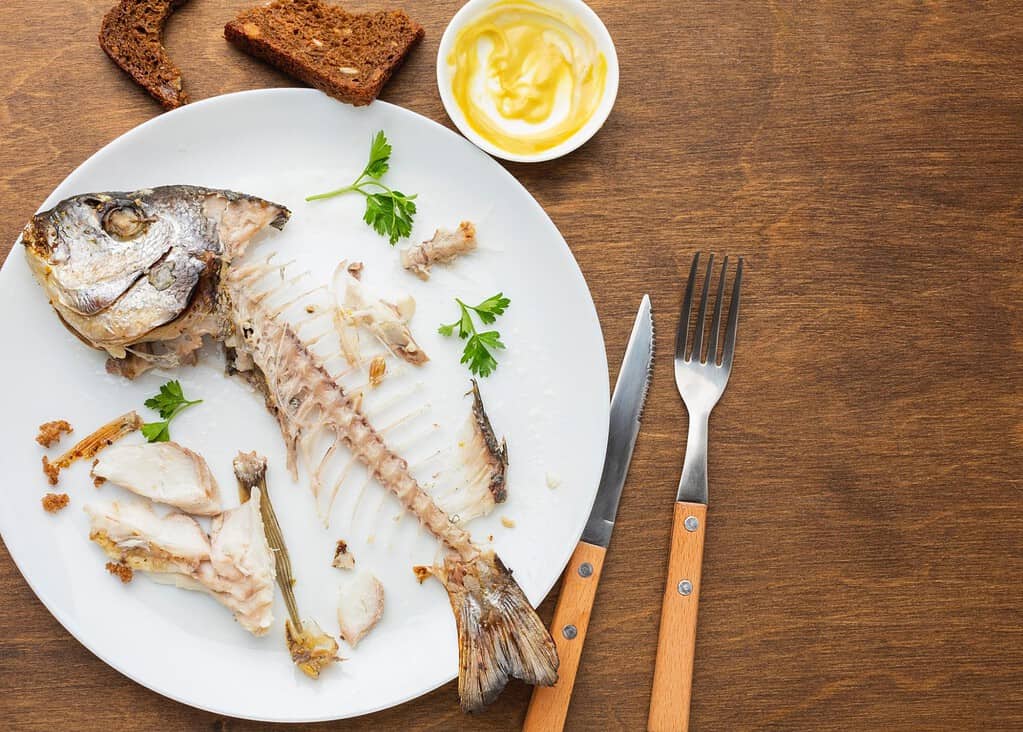
Ever got a tiny fishbone stuck in your throat? Yeah, Ouch! Our fur pals feel it too. Always make sure there are no bones—the small, sharp ones can be real troublemakers. If you’re up for a safer option, canned fish like light tuna or sardines make a great “de-boned” deal.
Moderation

Let’s take a lesson from Finding Nemo’s Dory—too much of something isn’t good. Fish packing high levels of toxins like mercury can play mean tricks on your fur friend’s health. Tap into safer options with less mercury, like whiting or light tuna.
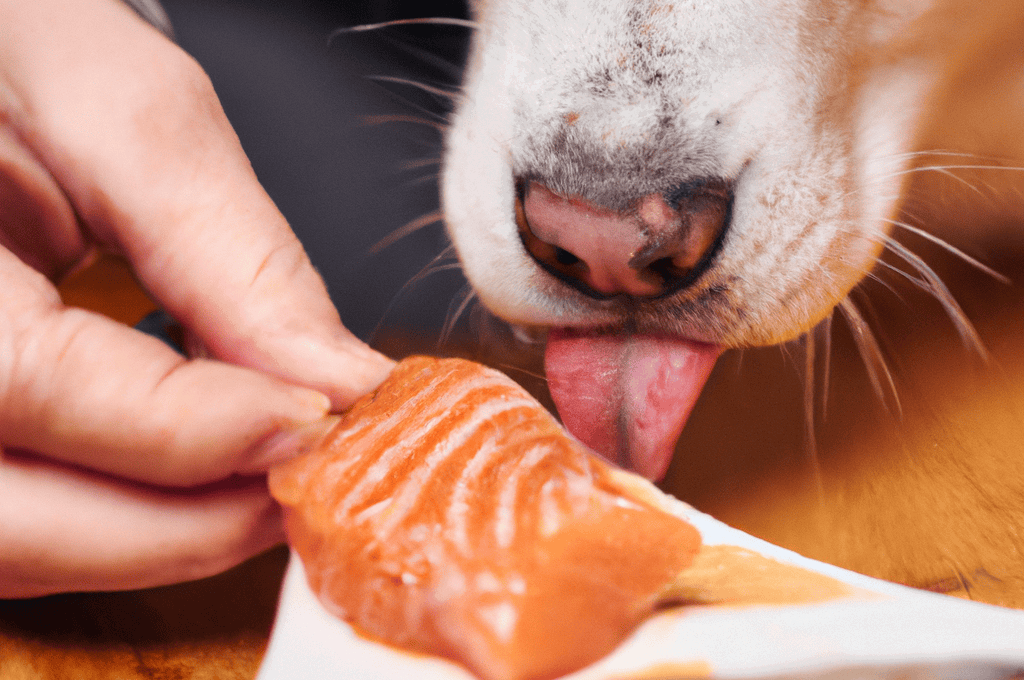
Now, fish might seem like popping a health supplement, but too much can tip the nutrient balance in your pooch’s diet. You wouldn’t want your dog to suffer from health issues like bone problems or kidney damage, right? So, serve fish as a treat or an occasional supplement and make sure things stay balanced.

So, there you have it! Dive into the fish world but remember, it’s all about cooked, boneless, low-mercury fish, sans seasonings. When done safely, your dog can enjoy a splashing good time in the sea of health benefits that fish offers!
Inclusion of Seafood in Commercial Dog Foods
So, you’ve discovered your fur pal’s lofty fish tales aren’t just for walks by the pond, and those fishy treats can actually be pretty good for them. Many commercial dog food makers are in the same boat – they’ve realized that fish isn’t just excellent for a ‘tail’ wag, but also a paw-some way to add healthy goodness to your pooch’s diet.

Dog food brands are catching onto the idea of fishy goodness, reeling in species like salmon, ocean whitefish, lake whitefish, herring, and walleye. These fish live life in the fast lane (ok, in fish terms), which means they don’t have time to accumulate nasty mercury or parasite buddies, making them safe stars in your fur buddy’s food.
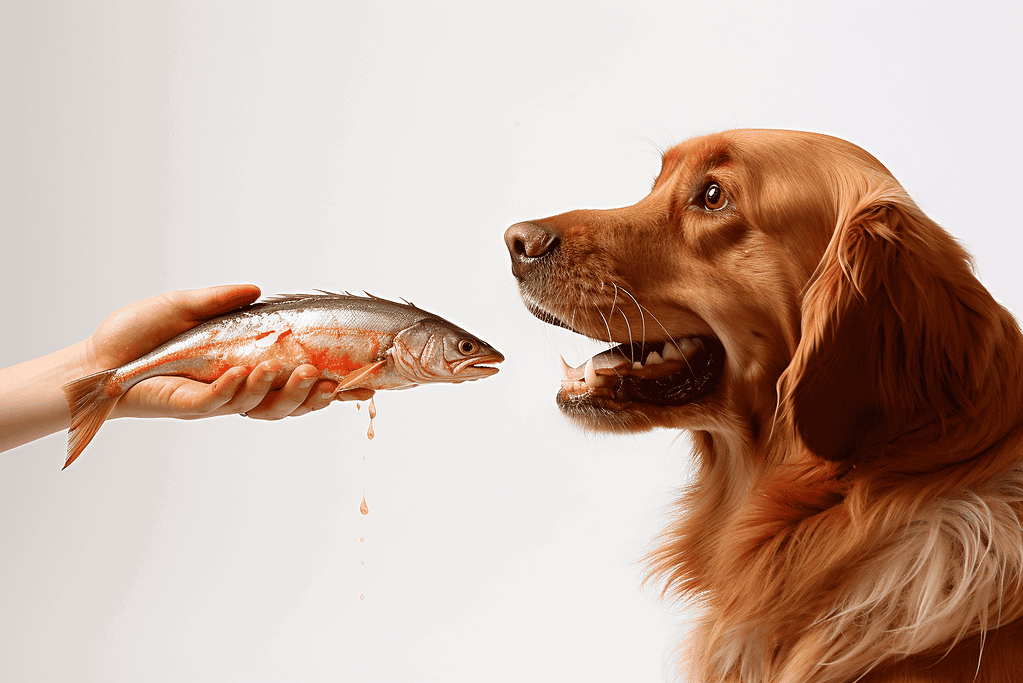
Got a pooch with food allergies? Fish leaps in as the underdog protein source, shaking things up for your pal’s plate and helping to reduce allergic reactions to the usual suspects – chicken, beef, or lamb. Now that’s a splash of variety that can boost your dog’s health game!
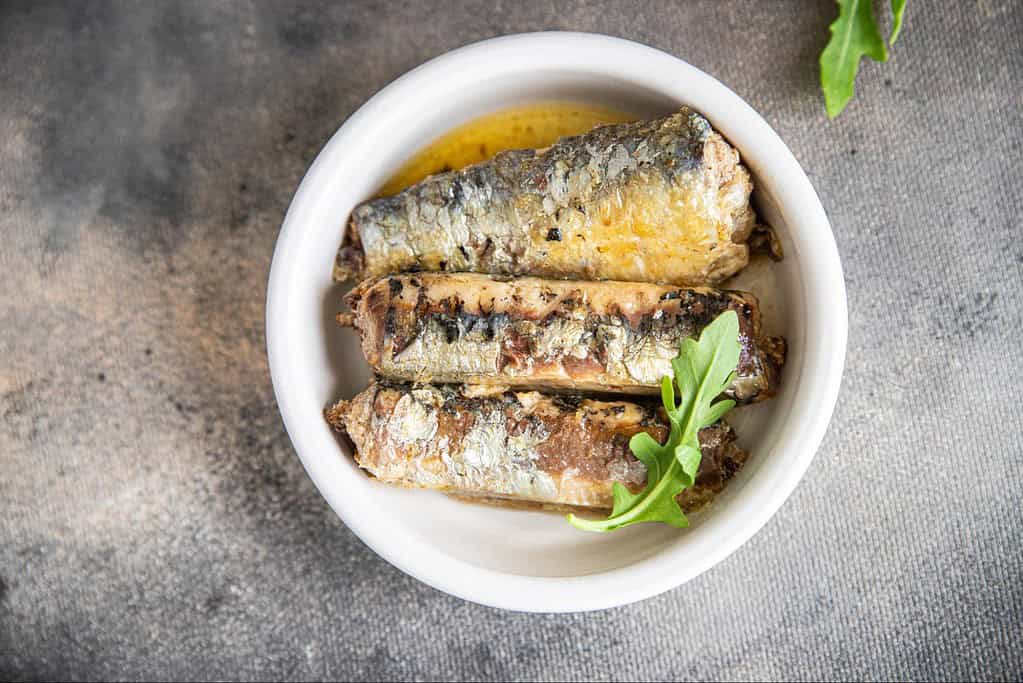
And let’s not forget about sardines – yes, these little guys too can find their way into your fur pal’s food. Fun fact: sardines are so small that their mercury level is nearly as tiny as they are. And guess what, dogs can have them skin-on and bone-in!

To make sure your pup gets all the oceanic benefits from commercial fish-based foods, remember to keep an eye out for quality. Choose products that use top-notch ingredients and follow the feeding guidelines to maintain a balanced diet. Not only will your dog enjoy the seafood fare, but they’ll also have their health tides turning for the better!
Do-It-Yourself Fish Meals for Dogs

Nothing lights up a fur pal’s eyes faster than the sizzle and aroma of a home-cooked meal prepared by their favorite human – yeah, that’s you! For a tasty health boost, fish can be the main character in your culinary script that makes your pooch’s mealtime a gourmet experience.
Cooking Methods
Before your domesticated fur pal huffs and puffs to blow your kitchen down in their impatience for a fish feast, let’s get cooking! We’re all for raw love, but serving raw fish to your pooch is a flat out no-no. You’ll want to send any pesky parasites and harmful bacteria packing by giving that fish a good cooking session.
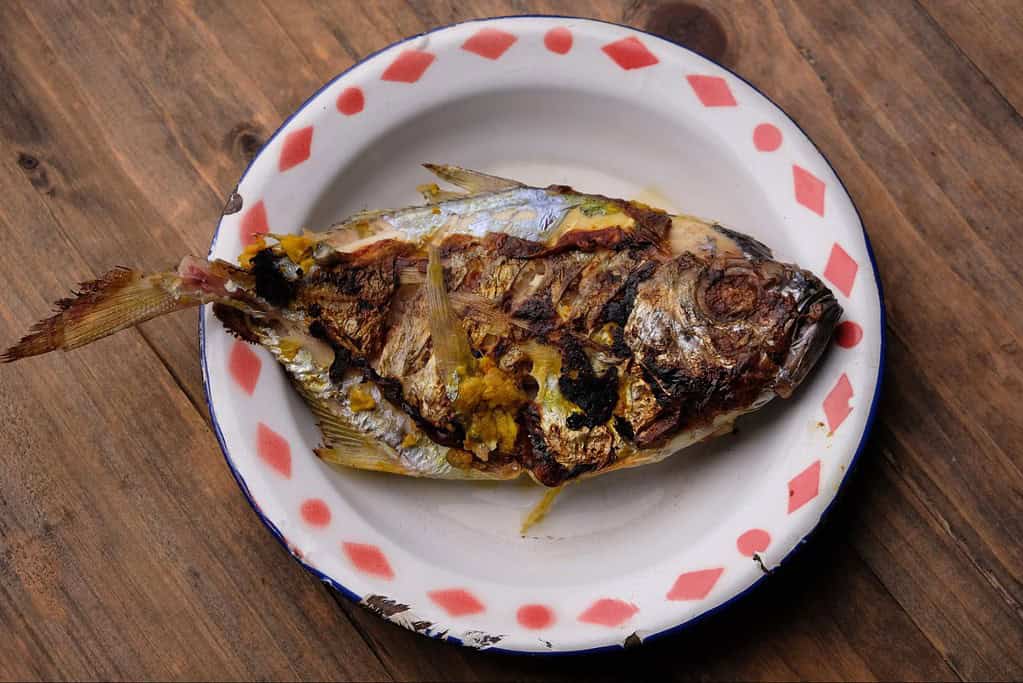
Baking, grilling, or steaming, it’s your pick! Whichever way doesn’t soak up fatty oils (we’re watching you, frying) is a winner. Just be careful with fishy bones – those tiny ones can be sneaky. Give them the boot, so we don’t have any choking or internal injury scenarios.
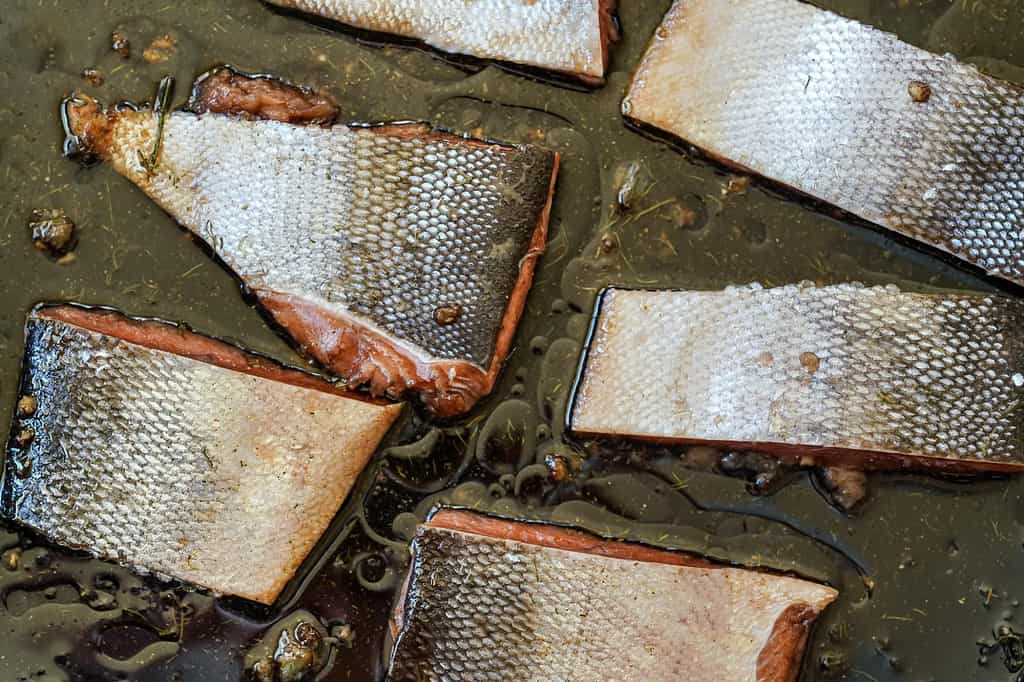
Let’s not skimp on the skin! The fish skin can be a crunchy treat for your fur buddy. But beware the fat check – skin can pack more fat than the fish itself! Bake them until crispy and voila, a lip-smacking treat is ready! But remember, moderation is key; we don’t want excess fat playing havoc with your doggie’s tummy or weight.
Mixing With Veggies And Fruits

Adding a rainbow of veggies and fruits to your buddy’s fish platter not only creates an Instagram-perfect meal but also loads up on vitamins and nutrients. Think sweet potatoes, green beans, blueberries – Yum! Keep new additions small and slow though, to ward off any potential tummy troubles or allergies.

Variety keeps things exciting, so consider swapping fish with other protein stars like chicken, beef, or lamb now and then. Of course, it’s always smart to consult your vet about your fur pal’s dietary needs. As you whip up some home-cooked goodness, you’ll be serving up a diverse and balanced diet starring tasty fishy treats! Enjoy your cooking adventures!
Your Doggie-Fish FAQs Answered!
Wondering about dogs and fish? Here are the key points!
Can Dogs Munch on Cooked Fish?

Sure, they can! Fish brings protein and omega-3 fatty acids to the table, which are a big health win for your pooch. Just make sure to serve cooked fish without any bones. They’re a no-go as they can cause harm.
Which Fish is Good for Dogs?
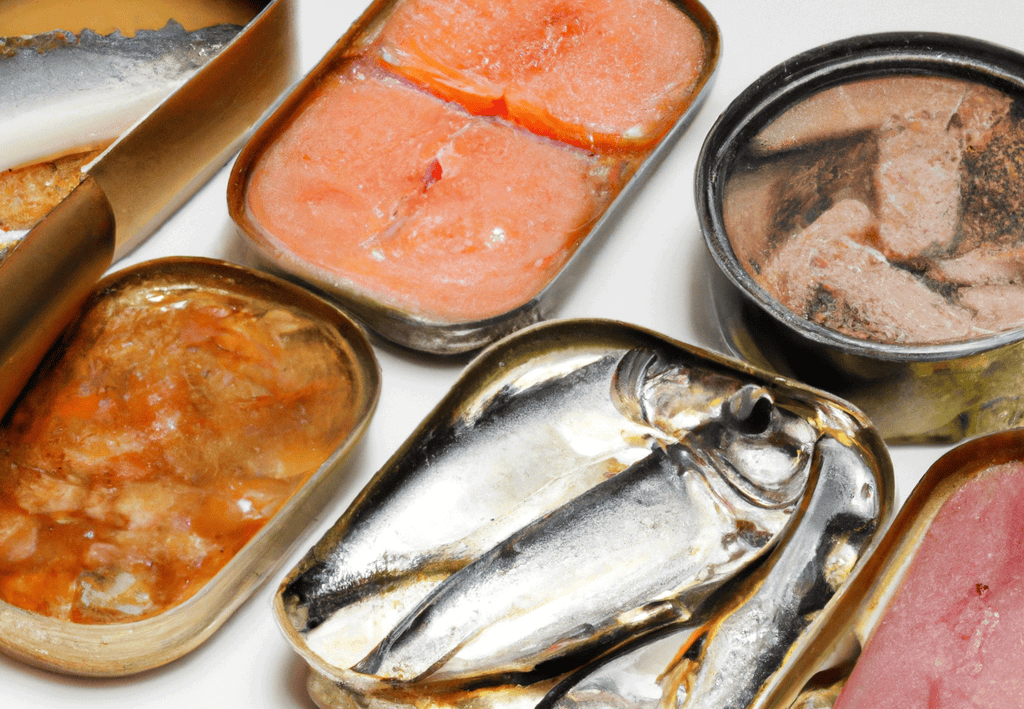
Salmon, whiting, canned light tuna, and sardines are safe for dogs. These fish are generally less likely to have high tissue mercury levels or significant parasite burdens. Sardines are also considered safe for dogs to consume due to their small size.
Fish Skin and Bones – Yay or Nay?
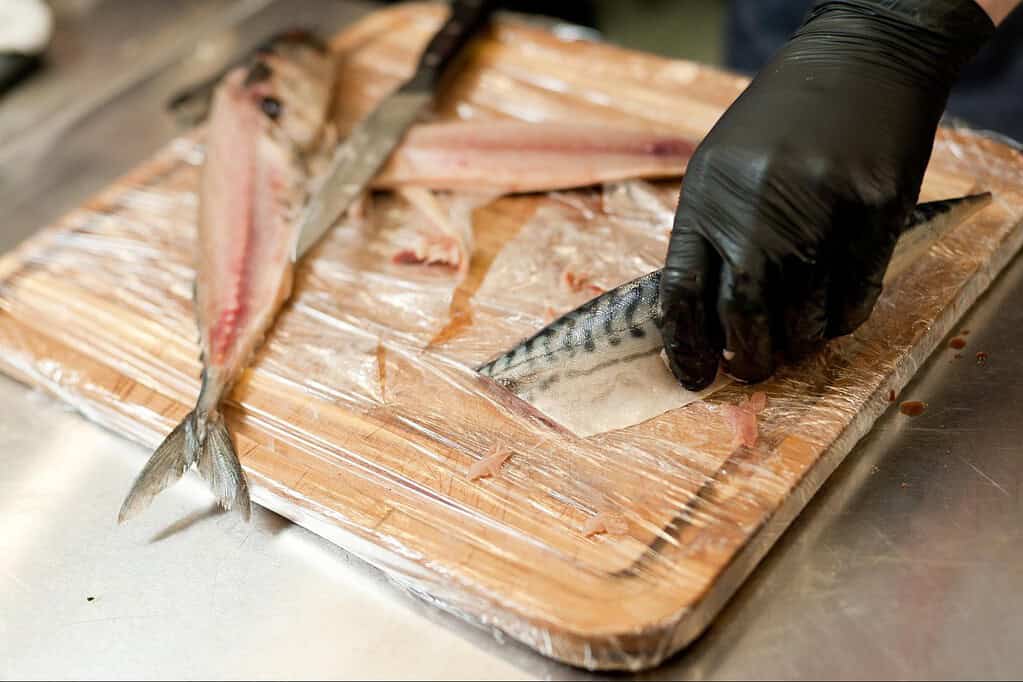
Nope, not a good idea. Give fish skin and bones a skip – they can be more trouble than they’re worth.
Any Fish to Avoid for Dogs?

Stay clear of fish with high levels of mercury like swordfish, king mackerel, and shark. And no raw fish – you don’t want unwanted bacteria or parasites.
How to Cook Fish for Dogs?
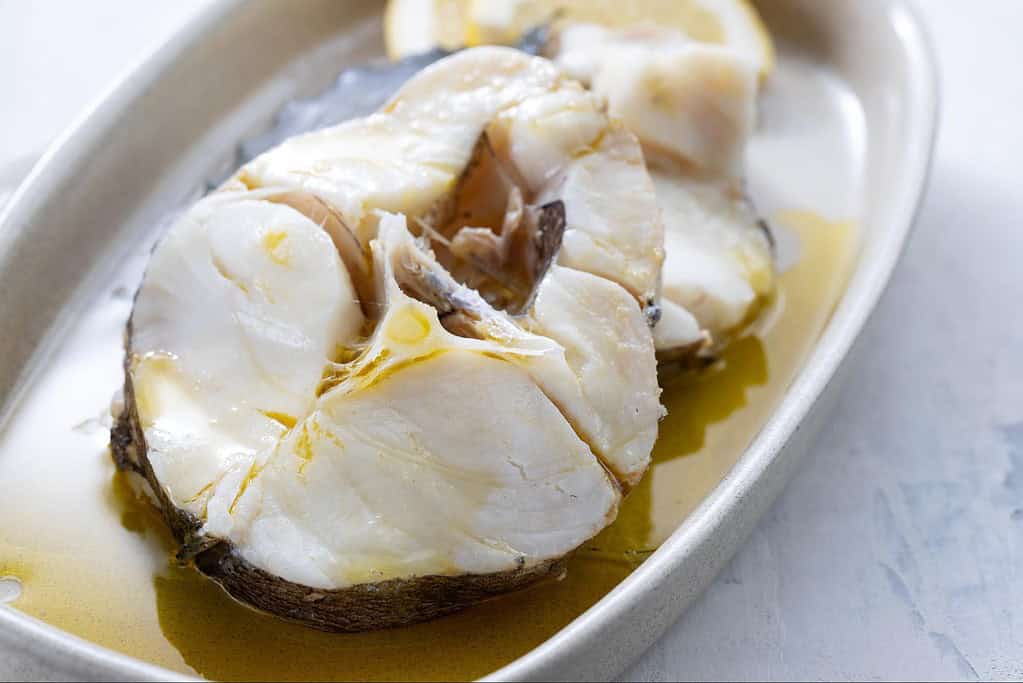
Cook the fish thoroughly and don’t add any oil, butter, seasonings, or spices. And remember, no bones or skin. Keep fish treats small and a couple of times per week should be enough.
What You Need To Remember
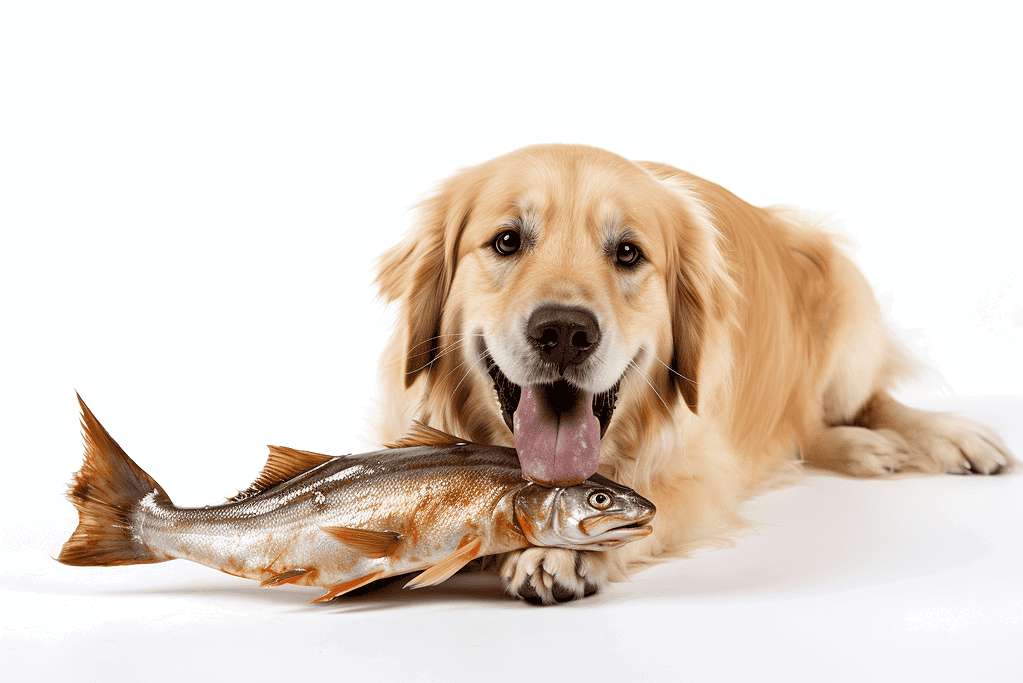
- Dogs can eat fish, but it should be prepared properly and in moderation.
- Pay attention to safety factors, such as cooking methods and bone removal.
- Choosing the right type of fish for your dog is essential to maximize benefits and minimize risks.
